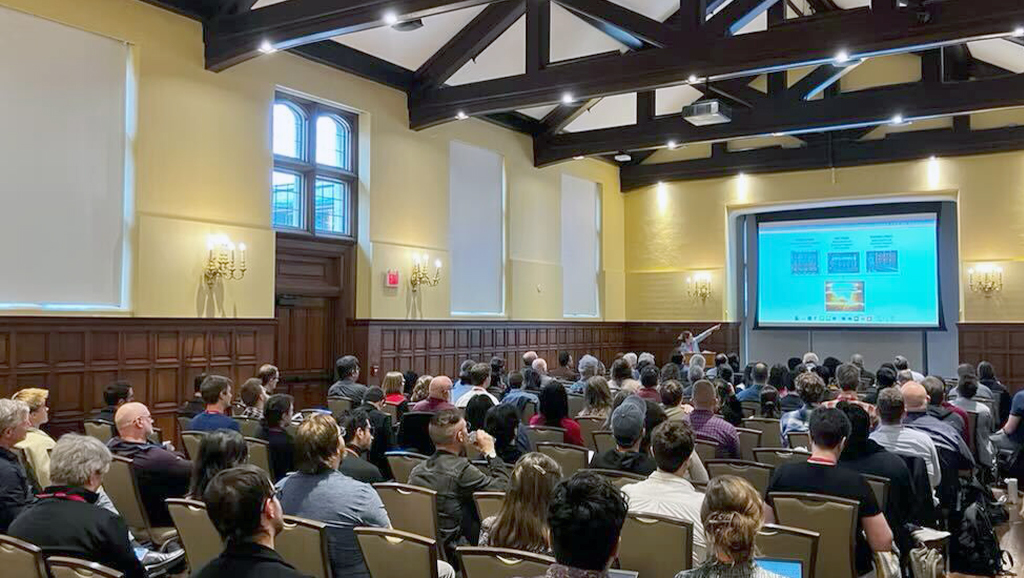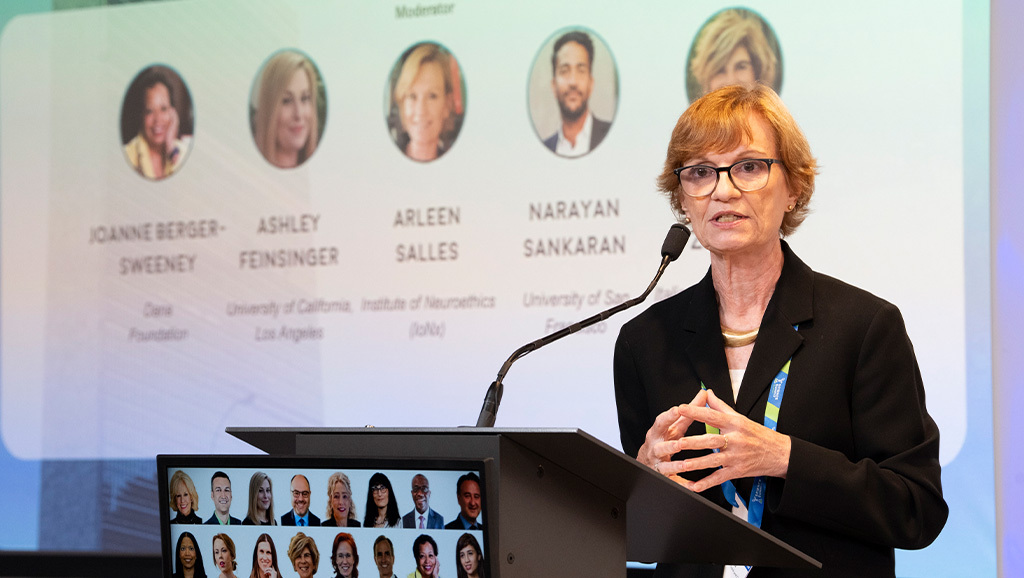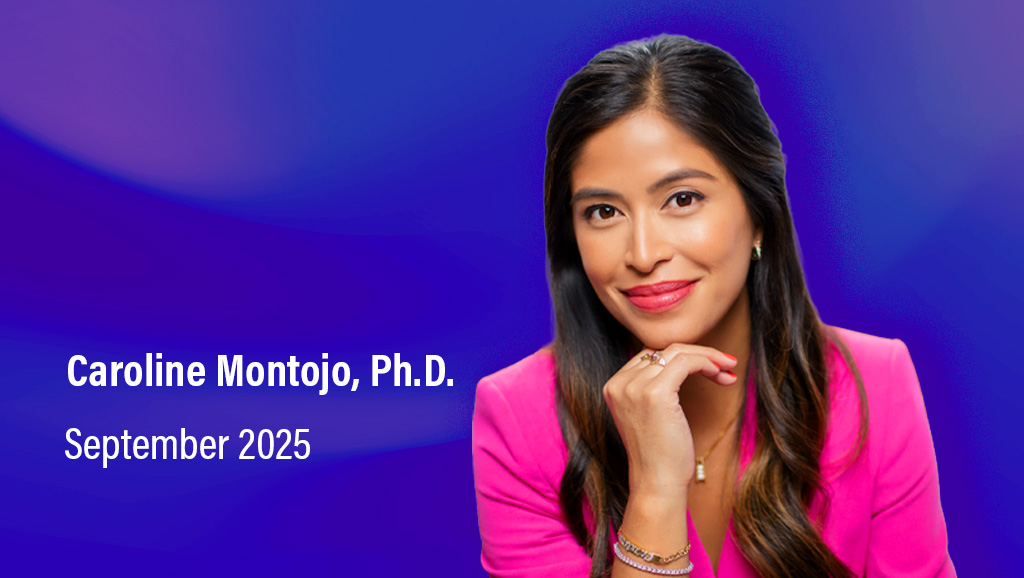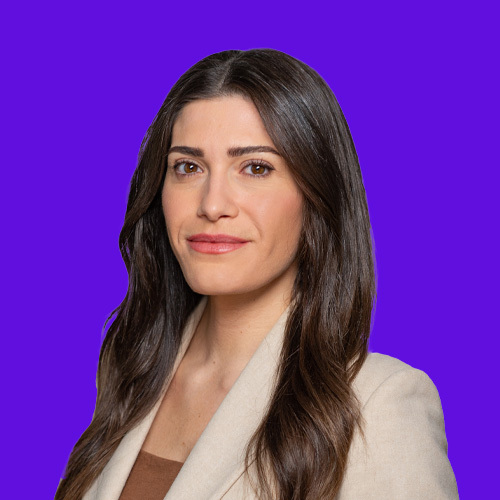News & Insights
A Neuro-Philosophical Approach to Understanding the Brain

In May, the Society for Philosophy and Neuroscience (SPAN) hosted their inaugural meeting, an interdisciplinary conference dedicated to bridging conversations between neuroscientists and philosophers. Held at Washington University in St. Louis, MO, the event brought together participants ranging from early-career researchers to renowned scholars in both neuroscience and philosophy, to explore how dialogue can help address complex questions that cross disciplinary boundaries, and to foster strong interdisciplinary relationships in the joint endeavor to understand the mind and brain.
Several strands of neuro-philosophical work were explored at the conference, revealing how philosophical engagement with neuroscience can help bring the societal dimensions of scientific questions into sharper focus. Take, for instance, the study of consciousness: Philosophical inquiry in this area informs our understanding of intelligence and helps shape how we think about conscious awareness in clinical settings. Insights shared through various symposia and keynote lectures illustrated how interdisciplinary research and dialogues between neuroscience and philosophy can guide our approach to complex scientific, ethical, legal, and civic challenges. These include issues such as medical decision-making in cases of disordered consciousness and the use of neuroscientific information in the legal system.
Navigating Social Relationships
With societal applications of neuro-philosophical work ranging widely, one of the most resonant topics at the SPAN conference highlighted how neuroscience and philosophy work on memory can inform how we understand and navigate social relationships.
Felipe De Brigard, Ph.D., faculty at Duke University’s Institute for Brain Sciences, presented compelling research on the connection between memory and forgiveness.
Drawing on his dual background in neuroscience and philosophy, his work challenges the adage “forgive and forget,” suggesting instead that forgiveness may involve remembering past events with less emotional intensity, rather than attempting to erase or suppress them. This conceptual reframing carries important implications. De Brigard’s work suggests that the emotional benefits often linked to forgiveness, such as reduced stress, improved well-being, and greater relational harmony, may also be attainable through alternative strategies that do not require changing one’s view of the wrongfulness of an act.
Emotional reappraisal techniques, for instance, can help reduce the intensity of negative emotions tied to a memory, allowing individuals to move forward without needing to justify, excuse, or reinterpret the harm done. This is especially relevant in cases involving deep personal or structural trauma, where moral calls for forgiveness can place unfair emotional burdens on those who have been harmed. By shifting focus from moral resolution to emotional regulation, this approach opens up new possibilities for mental health interventions and justice practices that honor people’s experiences while still supporting healing.
New Landscapes Across Neuroscience, Philosophy, and Society
The final day of the conference brought a valuable meta-reflection on the intersection of neuroscience and philosophy. Danielle Williams, Ph.D., a postdoctoral research fellow at Washington University, emphasized the value of cross-disciplinary collaboration and cautioned against the premature formalization of interdisciplinary work into a singular, hyper-specialized field.
Williams reflected on how a dominant early metaphor within computational neuroscience—one that framed the brain as analogous to a computer, a passive processor of inputs and representations–emerged from narrowly focused computational models. While this analogy supported technical advances, it has been criticized in recent years for relying on an overly specialized lens that sidelined the brain’s role as an active, embodied organ that constructs experience through dynamic interaction with the environment.
Williams posited that the interdisciplinary field of neuroscience and philosophy can avoid similar conceptual traps by focusing on long-term, flexible collaborations that allow each field to challenge and expand the other. This is in line with a central idea explored in the 2019 opinion article, “Why science needs philosophy,” in which Lucie Laplane and colleagues argue that philosophy and science lie on a continuum yet caution that integrating the two is not a straightforward task.
The SPAN conference marked an important contribution in providing a dedicated space for interdisciplinary exchange and supporting a more open, collaborative environment for ongoing interdisciplinary conversation. From consciousness and memory to criminal justice and mental health, these collaborations highlight a broader mission at the intersection of neuroscience and society: to bridge empirical knowledge with societal values, priorities, and experiences, in ways that improve our shared lives.
Recommended Reading

From Broadcast to Belonging: Dana's Public Engagement Evolution

Reciprocity in Neuroscience: Dana Foundation Panel at the UN Science Summit

